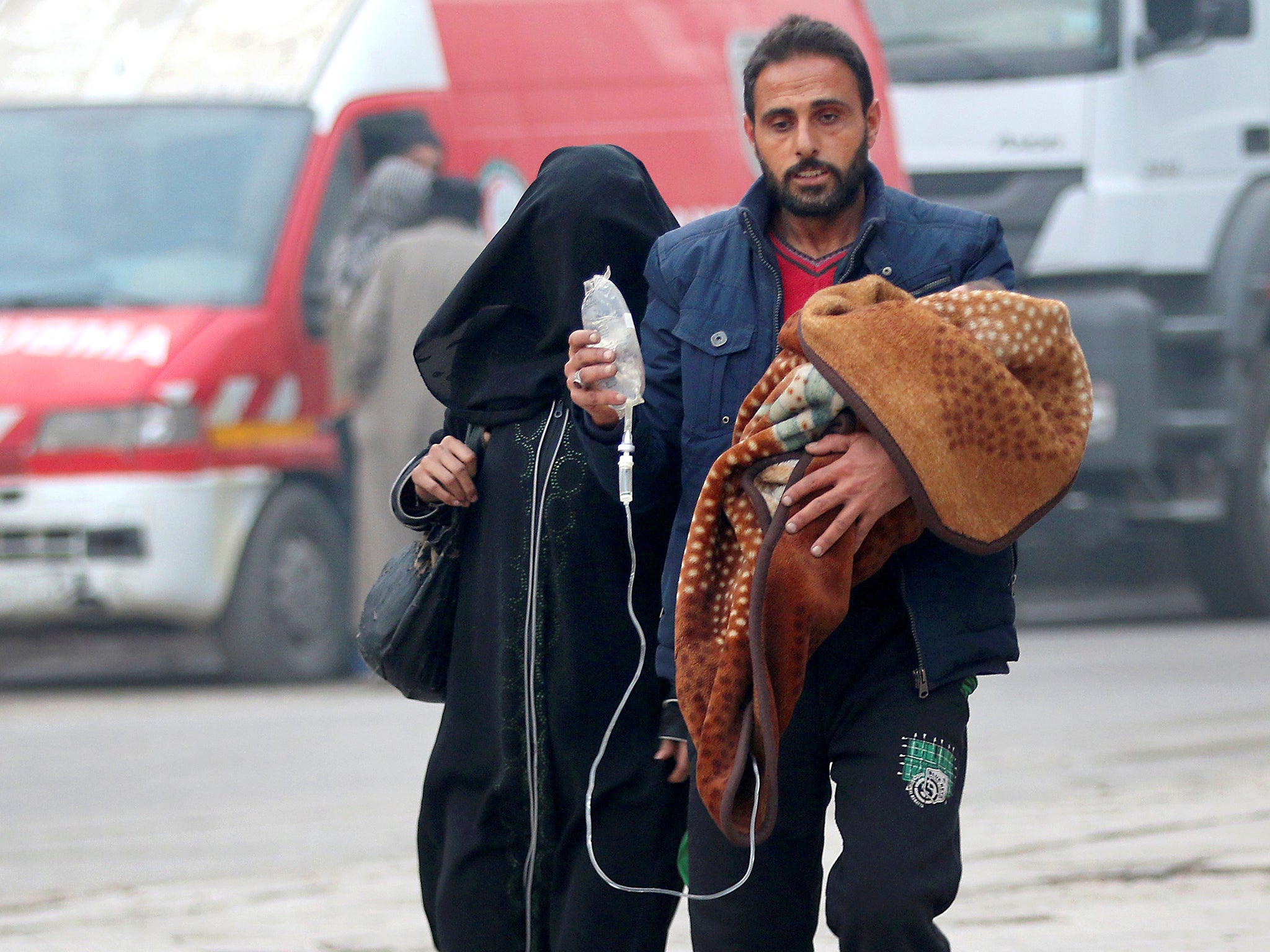As Aleppo burns, we need to face the dark truth about where our foreign aid actually goes
Foreign aid is a bargaining chip with developing countries, securing contracts for British oil, finance, infrastructure and military contractors, often structured via British tax havens, from the City of London

For Syrian civilians in Aleppo, caught in a brutal civil war since 2011 with relentless shelling, barrel bombs and sniper fire, “everything feels like hell”.
US and UK-led wars in Iraq and Afghanistan turned the Middle East into a ticking time bomb, generating refugee flows last seen during WW2 and sparking aggressive Cold War-esque military posturing over plans to isolate Syria from Iran and Russia.
If the human tragedy unfolding in Syria teaches us one thing, it’s that western military intervention is too often the cause of humanitarian crises, rather than the solution to it.
With the UN impotent, political leadership has never been more needed. Yet free market fundamentalism by governments is causing paralysing and inaction.
It is within the context of neoliberal economics that Theresa May’s signal to slash UK foreign aid should be examined.
While I wholeheartedly support the principle of generous humanitarian aid to those in need, I resent what British “foreign aid” has become: that is, an arm’s-length slush fund for private finance and British corporations.
I recall a time when international aid stood for humanitarian support, access to emergency medical care, food, clean water and sanitation.
“Foreign aid” in the neoliberal era dictates if we give to deserving foreigners, the sick, starving, or those affected by war, we do so for financial return. “Aid” as a market-led, quid-pro-quo arrangement for British corporations. All pretence of compassion, care and solidarity gone.
British aid policy run by the FCO and DFiD is now a shop front for the UK corporate interests former US President Dwight D Eisenhower called the “Military Industrial Complex”: banks, oil companies, and arms manufacturers like Barclays, British Petroleum (BP) and BAE Systems.
Foreign aid is a bargaining chip with developing countries, securing contracts for British oil, finance, infrastructure and military contractors, often structured via British tax havens, from the City of London.
The military tail wagging the parliamentary dog was never more obvious than in January 2016, when a debate on expanding RAF bombing into Syria was reduced to a PR marketing exercise for BAE/MBDA “Brimstone Missiles” tested in Syria and Libya, then sold to human rights-abusing Saudis.

There is a win-win alternative to UK militarism.
First, we need to spend more on research and development for renewable technologies, making improvements to domestic mass transportation and manufacturing. This decouples UK economic and foreign policy from militarism and reliance on rogue oil states.
By incubating low-carbon jobs, we can promote solutions to the triple crises of unemployment, ecological debasement and dependency on dirty energy which traps us in a cycle of foreign conflicts and resource wars.
Second, public procurement and pension funds can be repurposed to support UK based low-carbon technologies, creating jobs while allowing defence firms to transition to civilian production – like the Lucas Aerospace Plan did 40 years ago.
Military transition demands industrial policies to train workers, build alternative markets, and help defence firms finance civilian projects. This is what Marianna Mazzucato calls the “Entrepreneurial State” – informed Government, acting independently and leading the market.
Third, UK-based research and manufacturing tied to low-carbon industries can provide a foundation for a new kind of foreign aid. Aid that helps developing nations like Syria and Iraq become more self-sufficient, stable and integrated. Economic transition and integration can facilitate alternatives to civil conflict, terrorism and political authoritarianism that are socially and ecologically sustainable.
The UK should continue to face outward to the world and generously offer aid, solidarity and resources to those in Syria at a time of desperate need.
But let’s have an honest debate about foreign aid and not pretend that our corporatised, finance-led system supporting UK militarism is something it’s not.
Join our commenting forum
Join thought-provoking conversations, follow other Independent readers and see their replies
Comments
Bookmark popover
Removed from bookmarks